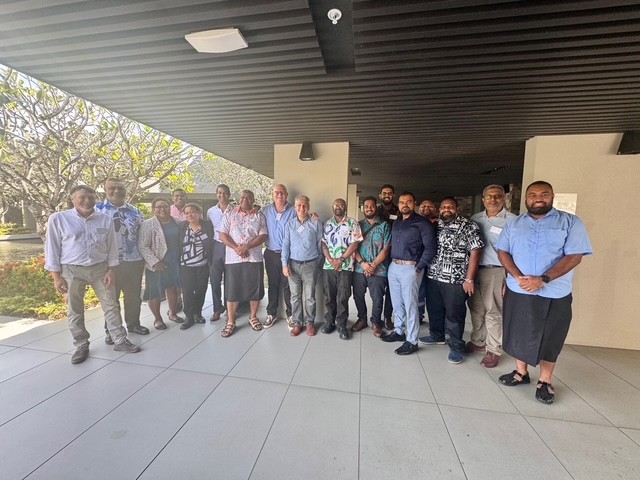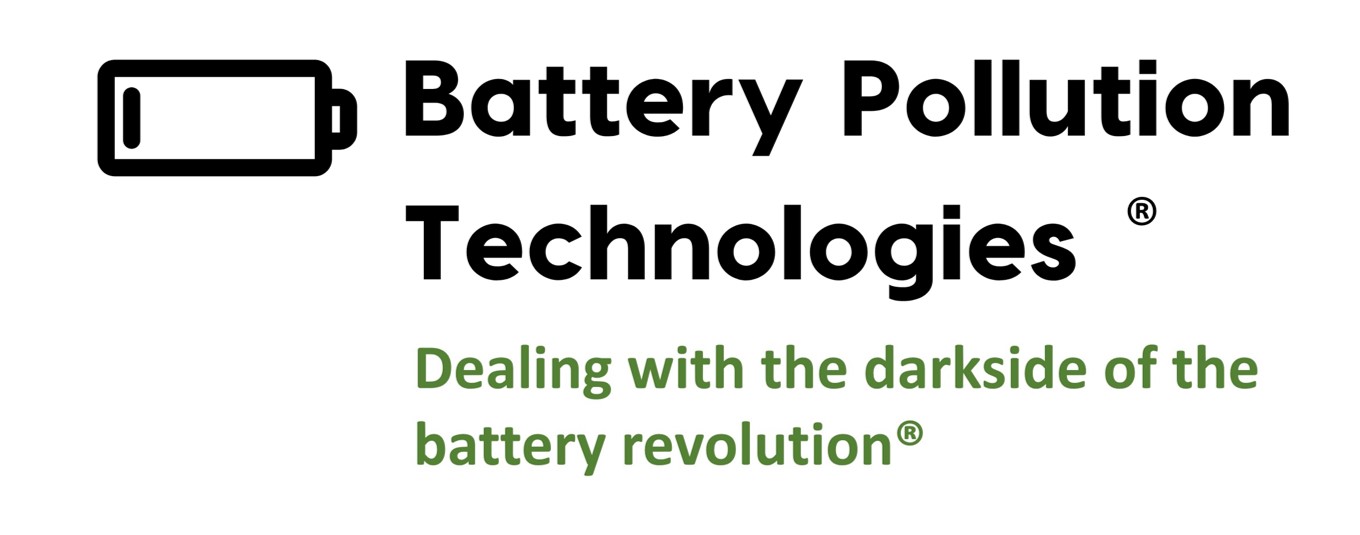Trending...
- California: Governor Newsom announces appointments 9.10.25 - 398
- John Thomas calls for unity and prayer after tragic loss - 362
- Ayurveda, Ayurvedic medical Science and Ayurvedic Therapies, Dr.Abhay Kumar Pati - 360
This partnership will support a series of coordinated initiatives including joint research into battery end-of-life issues in tropical climates and feasibility studies for establishing a battery recycling regional hub facility in Fiji to support all Pacific Nations in a "hub and spoke" operational framework.
SYDNEY & SUVA, Fiji - Californer -- The University of the South Pacific (USP) and Australian start-up Battery Pollution Technologies (BPT) are pleased to announce an exclusive strategic collaboration aimed at addressing battery pollution, circular economy opportunities, and sustainable energy challenges in the Pacific Islands region.
This partnership will support a series of coordinated initiatives including joint research into battery end-of-life (EoL) issues in tropical climates and feasibility studies for establishing a battery recycling regional hub styled facility in Fiji.
It also includes the evaluation of second-life battery applications to extend the usable life of lithium-based energy systems.
The partnership follows on from the First Pacific Battery Briefing that was delivered by Sydney-based Battery Pollution Technologies to various Fijian Government Agencies in May 2025.
With battery usage surging across the Pacific – driven by electrification, renewable energy storage, and mobility – the environmental and logistical challenges of safe disposal and reuse are growing. The partnership seeks to generate practical, regionally adapted solutions that prioritise environmental integrity, economic development, commercial opportunity and energy resilience.
More on The Californer
Pacific Island countries face an urgent challenge in managing battery waste, driven by their geographic isolation, limited waste management infrastructure, and the vulnerability of their land and marine ecosystems.
Batteries power everything from mobile phones and solar lanterns in remote communities to electric vehicles and backup systems for island energy grids.
However, the presence of hazardous materials such as lithium, cobalt, and nickel poses significant environmental and safety risks if not properly managed.
Improper disposal can contaminate drinking water, damage coral reefs, and heighten ire hazards – especially in densely populated areas or during extreme weather events like cyclones.
As small island developing states, Pacific nations require practical, circular economy solutions that reduce dependency on imports, build local capabilities, and safeguard both the environment and cultural heritage.
For Fijian and Pacific communities, this is highly relevant as the use of batteries grows every year – from mobile phones & e-mobility scooters and bikes to the growing number of electric and hybrid vehicles.
Lithium batteries pose a unique challenge in end-of-life disposal due to their potential to catch ire, the presence of hazardous materials and the complexity of safely recycling and reusing valuable battery metals such as lithium, cobalt, copper and nickel.
"This partnership is a significant step forward in realising a circular battery economy for the Pacific," said Mansour Assaf, an Associate Professor at USP's School of Information Technology, Engineering, Mathematics and Physics (STEMP).
"By combining BPT's technical & commercial experience with USP's regional insight and research capabilities, we aim to build sustainable models that can be scaled across all island nations."
More on The Californer
"This is more than a research initiative," added Nicholas Assef, Founder & Managing Director of Battery Pollution Technologies.
"It's a commitment to innovation that delivers real environmental outcomes, the potential for investment, fit-for-purpose technology development and local education and employment opportunities."
"The Pacific is one of Earth's most beautiful regions, and the environmental impact of toxic end-of-life batteries in land and water needs to stop." Nicholas Assef concluded.
The collaboration will also encompass student research opportunities, policy engagement with Pacific regional governments and battery recycling capacity-building programmes across Pacific Island countries.
A critical and time-sensitive initiative will be the rapid establishment of structured internships at The University of the South Pacific, aimed at equipping students with hands-on experience in the fast-evolving battery ecosystem.
These internships will urgently address vital areas – battery diagnostics, second-life potential, materials recovery, data systems, and safe end-of-life disposal – accelerating the development of Fijian and Pacific Nations talent needed now to drive renewable energy efforts and circular economy outcomes across the region.
Battery Pollution Technologies and The University of the South Pacific have spent the past two years working closely to bring this initiative to life.
With momentum building, both parties are now eager to accelerate progress and deliver meaningful outcomes through this vital Trans-Pacific collaboration.
This partnership will support a series of coordinated initiatives including joint research into battery end-of-life (EoL) issues in tropical climates and feasibility studies for establishing a battery recycling regional hub styled facility in Fiji.
It also includes the evaluation of second-life battery applications to extend the usable life of lithium-based energy systems.
The partnership follows on from the First Pacific Battery Briefing that was delivered by Sydney-based Battery Pollution Technologies to various Fijian Government Agencies in May 2025.
With battery usage surging across the Pacific – driven by electrification, renewable energy storage, and mobility – the environmental and logistical challenges of safe disposal and reuse are growing. The partnership seeks to generate practical, regionally adapted solutions that prioritise environmental integrity, economic development, commercial opportunity and energy resilience.
More on The Californer
- Bridging Traditional Finance and Web3 Innovation: BLFCW Announces Strategic Vision for Regulated Web3 Economy
- NKSCX Responds to "Coordinated Smear Campaign" as Anonymous Critics Emerge Following Regulatory Milestones
- Broadway Gala Honored Also an Italian
- $ONI Listed on MEXC as ONINO Powers Europe's Tokenization Engine Into Public Platform Launch
- AZETHIO Crypto Exchange Whitepaper Reveals MPC-Secured Infrastructure Processing 1.2 Million Transactions Per Second
Pacific Island countries face an urgent challenge in managing battery waste, driven by their geographic isolation, limited waste management infrastructure, and the vulnerability of their land and marine ecosystems.
Batteries power everything from mobile phones and solar lanterns in remote communities to electric vehicles and backup systems for island energy grids.
However, the presence of hazardous materials such as lithium, cobalt, and nickel poses significant environmental and safety risks if not properly managed.
Improper disposal can contaminate drinking water, damage coral reefs, and heighten ire hazards – especially in densely populated areas or during extreme weather events like cyclones.
As small island developing states, Pacific nations require practical, circular economy solutions that reduce dependency on imports, build local capabilities, and safeguard both the environment and cultural heritage.
For Fijian and Pacific communities, this is highly relevant as the use of batteries grows every year – from mobile phones & e-mobility scooters and bikes to the growing number of electric and hybrid vehicles.
Lithium batteries pose a unique challenge in end-of-life disposal due to their potential to catch ire, the presence of hazardous materials and the complexity of safely recycling and reusing valuable battery metals such as lithium, cobalt, copper and nickel.
"This partnership is a significant step forward in realising a circular battery economy for the Pacific," said Mansour Assaf, an Associate Professor at USP's School of Information Technology, Engineering, Mathematics and Physics (STEMP).
"By combining BPT's technical & commercial experience with USP's regional insight and research capabilities, we aim to build sustainable models that can be scaled across all island nations."
More on The Californer
- CELOXFI Platform Demonstrates Advanced Security Architecture and Regulatory Framework
- Sharks and Seaside Resilience in Great White Summer on Documentary Showcase
- Finding LVN Jobs in Los Angeles: A Premier Local Agency in LA County Offers Personalized Help
- Work 365 Launches PV 3.0: The Keystone Power App for Microsoft CSPs
- Affinity Nightlife's Post Awards After Party Celebrated with the Industry's Biggest Stars
"This is more than a research initiative," added Nicholas Assef, Founder & Managing Director of Battery Pollution Technologies.
"It's a commitment to innovation that delivers real environmental outcomes, the potential for investment, fit-for-purpose technology development and local education and employment opportunities."
"The Pacific is one of Earth's most beautiful regions, and the environmental impact of toxic end-of-life batteries in land and water needs to stop." Nicholas Assef concluded.
The collaboration will also encompass student research opportunities, policy engagement with Pacific regional governments and battery recycling capacity-building programmes across Pacific Island countries.
A critical and time-sensitive initiative will be the rapid establishment of structured internships at The University of the South Pacific, aimed at equipping students with hands-on experience in the fast-evolving battery ecosystem.
These internships will urgently address vital areas – battery diagnostics, second-life potential, materials recovery, data systems, and safe end-of-life disposal – accelerating the development of Fijian and Pacific Nations talent needed now to drive renewable energy efforts and circular economy outcomes across the region.
Battery Pollution Technologies and The University of the South Pacific have spent the past two years working closely to bring this initiative to life.
With momentum building, both parties are now eager to accelerate progress and deliver meaningful outcomes through this vital Trans-Pacific collaboration.
Source: Battery Pollution Technologies
Filed Under: Automotive, Technology
0 Comments
Latest on The Californer
- Attn: Business: Looking for ways to Increase your Sales and Profit? Start using this Marketing Math
- END WELL 2025 SUMMIT BRINGS "RADICAL BRAVERY" TO LOS ANGELES, FEATURING EMMA HEMING WILLIS AND YVETTE NICOLE BROWN AMONG LEADING VOICES IN END-OF-LIFE TRANSFORMATION
- Long Beach: City to Host Community Demo Day to Showcase Neighborhood Technology Solutions
- Sloan's Lake Dental Launches New Website to Enhance Patient Experience and Access to Modern Dental Care
- Upcoming River City Ball & Brawl Bundle Includes Kunio-kun's Basketball & Tournament Fighting
- Only 3 Weeks Left till the Start of the OpenSSL Conference 2025
- Sanguine Expands Oncology Biospecimen Offerings Through Strategic Clinic Partnerships
- ENTOUCH Completes $50 million Funding Round
- Teaming Agreement with Emtel Energy USA to Advance Thin-Film PV Energy Storage Capabilities; NASA agreements for Solar Space Tech; Ascent Solar $ASTI
- Nebuvex Acknowledges Platform "Too Secure" for Anonymous Traders; Institutional Investors Disagree
- From Tokyo to Berlin: FreeTo.Chat Unites Cultures with the World's First Confession VRX — EmojiStream™
- McKenzi Brooke Set to Electrify the Super Girl Surf Festival in Oceanside, California
- AZETHIO Launches Multi-Million Dollar User Protection Initiative Following Unprecedented Platform Growth
- Matecrypt Observes South American Cryptocurrency Adoption Surge Amid Economic Shifts
- Assent Uncovers Over 695 Unique PFAS Across Global Supply Chains as Regulations Increase
- Ascend in Motion Expands Flat-Rate Transfers from LAX to San Diego
- Cryptocurrency Quarterly Trading Volume Surpasses $15 Trillion Record High as BrazilNex Acknowledges Industry 'Growing Pains' Amid Market Speculation
- AHRFD Initiates Legal Proceedings Against Anwalt.de for Publishing Defamatory and False Content
- New Analysis Reveals the Complex Forces Driving the 'Great Human Reshuffle'
- AdamMoney Launches Nationwide Hiring for Remote Sales Representatives to Promote 1st of-Its-Kind Pr

